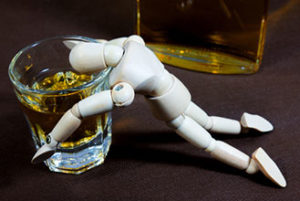Alcoholism is a problem all over the country, and it represents one of the most common sources of substance use issues. Alcohol is easy to obtain and culturally pervasive, so most people try it at one point in their lives. However, alcohol abuse and bingeing is a significant public health problem, and around 88,000 people are killed in alcohol-related deaths each year.
In New Jersey, a lot of the public health focus is on opioids, a class of prescription and illicit drugs that’s driving a national overdose epidemic, especially in the Northeast. However, alcohol continues to be a problem, and the rise of opioid use may worsen it. Learn more about the need for effective alcohol rehab on the Jersey Shore.
Jersey Shore Alcohol Rehab Statistics
Alcohol is one of the most commonly used and abused substances globally, especially in the United States. More than 86 percent of adults in the U.S. have tried alcohol at one point in their lives. However, problematic drinking usually starts with abuse or binge drinking, which is consuming four to five alcoholic beverages in two hours.
New Jersey has had a particular problem with binge drinking, and the state has shown upward trends in recent history. In 2017, more than 16 percent of adults reported binge drinking in the past 30 days, according to the New Jersey State Health Assessment Data.
New Jersey, along with much of the Northeast, has been seriously impacted by the opioid crisis of the past decade. However, the New Jersey Substance Abuse Monitoring System reports that alcohol was the second most cited substance among people seeking addiction treatment after heroin. According to the report, 27 percent of people entering treatment said alcohol was their primary drug of choice.
Most Commonly Abused Substance in the Jersey Shore Area

Alcohol can be dangerous when consumed in high amounts on its own, but it’s even more deadly when mixed with other substances. It’s common to mix alcohol with other substances, both by accident and intentionally. Alcohol is often present in situations where other drugs are taken recreationally. However, alcohol is dangerous to mix with a variety of drugs, including stimulants and other depressants.
Stimulants can combine with alcohol, and the two have opposing effects. This can mask some of the effects of both substances, leading people to take dangerously high doses. Opioids and depressants like benzodiazepines have the opposite effect. They can potentiate alcohol to lead to a deadly overdose with relatively low doses of each drug.
Quick Treatment Facts
Alcoholism is a form of addiction that’s diagnosed as an alcohol use disorder. Alcoholism is a chronic but treatable disease. A severe alcohol use problem is unlikely to get better without being addressed.
Addiction treatment is a complex process that’s personalized to individual needs. Because addiction can be complicated, and there is no universally effective treatment plan, your plan will need to be tailored to the substance use issues and underlying problems you might have.
Addiction treatment is multidisciplinary; it’s designed to address medical, psychological, and social issues. When you enter an addiction treatment program, you’ll meet with medical and clinical professionals to form a treatment plan that works for you.